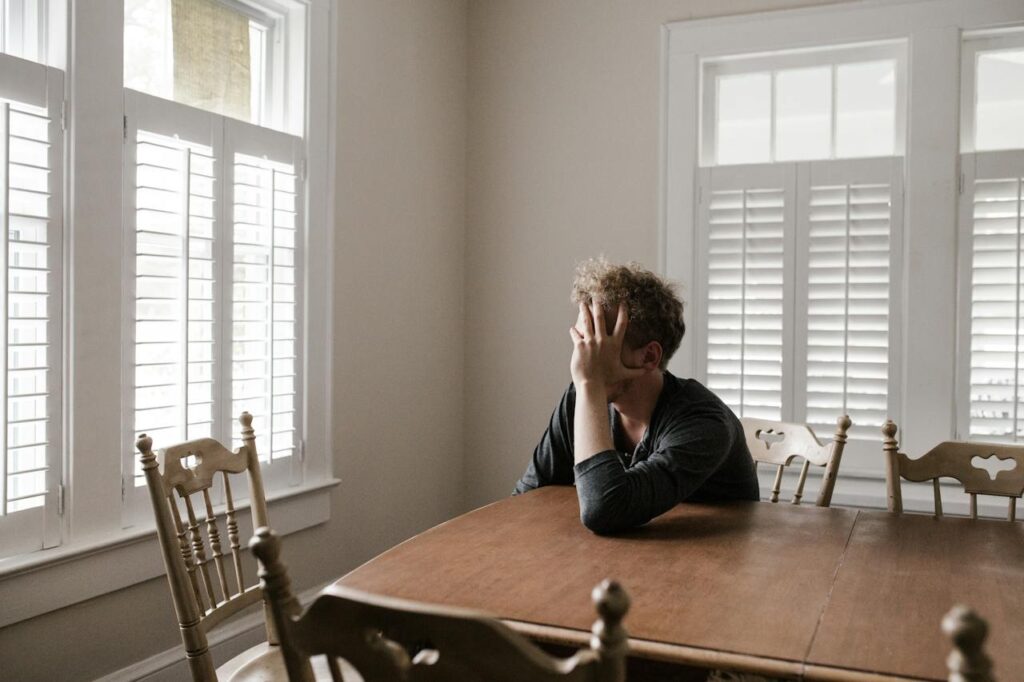Everyone feels sad or anxious from time to time, but when these feelings are persistent and interfere with daily life, they can be signs of a mental health disorder.
Talk therapy and certain medications can help treat anxiety and depression help. A few simple lifestyle changes can also make a difference:.
1. Get a good night’s sleep
Getting enough sleep is vital for overall mental health. Studies show that a lack of sleep can increase anxiety and contribute to depression.
If you have trouble sleeping, it’s important to try to make changes. For example, you can reduce your stress levels and practice relaxation techniques. It’s also helpful to avoid caffeine and alcohol in the hours leading up to bedtime.
It’s also a good idea to create a relaxing bedtime routine that includes turning off screens and doing something else calm before going to bed, like reading, taking a hot bath, or listening to soothing music. You can also practice meditation or deep breathing. BetterHelp can match you with a therapist who can help you manage your anxiety and depression and get a good night’s sleep.
2. Eat a healthy diet
Eating a healthful diet rich in whole, unprocessed foods can go a long way toward supporting mental health and decreasing anxiety symptoms. Nutrient-rich foods such as fruits, vegetables, whole grains, low-fat dairy, lean protein sources, nuts and seeds, and omega-3 fatty acids have been shown to support brain health.
Eggs are an excellent source of the amino acid tryptophan, which helps create serotonin (a neurotransmitter that improves mood). Curcumin, the active ingredient in the spice turmeric, has also been shown to help reduce stress and anxiety.
Limiting consumption of alcohol, caffeine, and sugary foods can also be beneficial in reducing anxiety. Adopting a healthy eating pattern and making simple changes can provide anxiety relief for many people. But diet is only one aspect of treatment and should be used in conjunction with therapy and medication.
3. Exercise
People with anxiety often don’t exercise as much as they should, which is ironic because research shows that getting even moderately active can improve depression and anxiety symptoms. Make sure to include both aerobic and resistance workouts, like walking, swimming, running, biking or taking an aerobics class.
Symptoms of anxiety and depression tend to happen together, so it’s important to get help for both conditions at the same time. Treatment options for both depression and anxiety include medication, therapy, and other lifestyle changes.
The reasons why exercise helps depression and anxiety aren’t completely clear, but it may be because it releases feel-good chemicals in the brain and boosts self-esteem. Plus, meeting exercise goals and challenges can increase confidence. Also, regular exercise and physical activity can give you the opportunity to socialize with others.
4. Talk to a friend or family member
Sometimes talking about a mental health concern to someone you trust can help. But not everyone wants to talk about it, and even those who do might have trouble knowing what to say.
It is normal to be nervous or anxious about important events like a big exam, job interview or social situation. But when these feelings become overwhelming or interfere with daily life, it is time to seek help.
Psychological treatments, including cognitive behavioral therapy, are effective for anxiety and depression. In addition, many people find relief from anxiety by taking medication. Your doctor may recommend SSRIs or SNRIs (escitalopram, Lexapro), venlafaxine (Cymbalta) or bupropion (Wellbutrin). Medications take a few weeks to start working. You might also consider a self-help or support group for anxiety and depression.
5. See your doctor
You need to be open and honest with your doctor when describing your symptoms. If you aren’t, your recovery could be hampered or completely fail. It’s also helpful to write down questions for your doctor before your appointment.
A physician who specializes in anxiety disorders or depression can help you manage your symptoms through psychotherapy, or talk therapy, and medication. Psychotherapy options include cognitive behavioral therapy (CBT) and exposure therapy, where you confront your fears in a safe environment.
Depression and anxiety are medical conditions that are not your fault. Learning healthy coping mechanisms will help you feel better in the long run. Then you can focus on taking care of your body and mind. Sleep, exercise, and a well-balanced diet will make a big difference.

